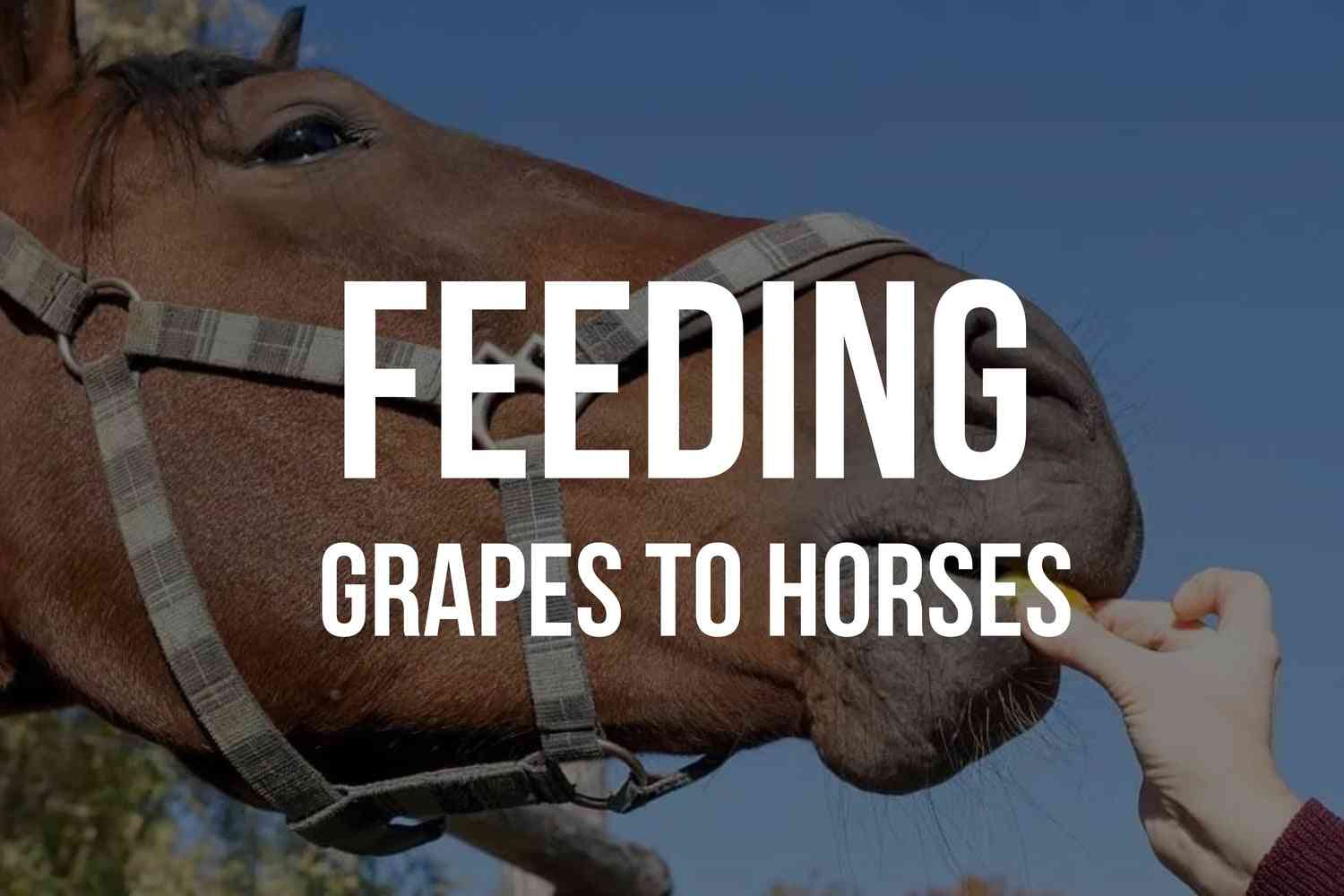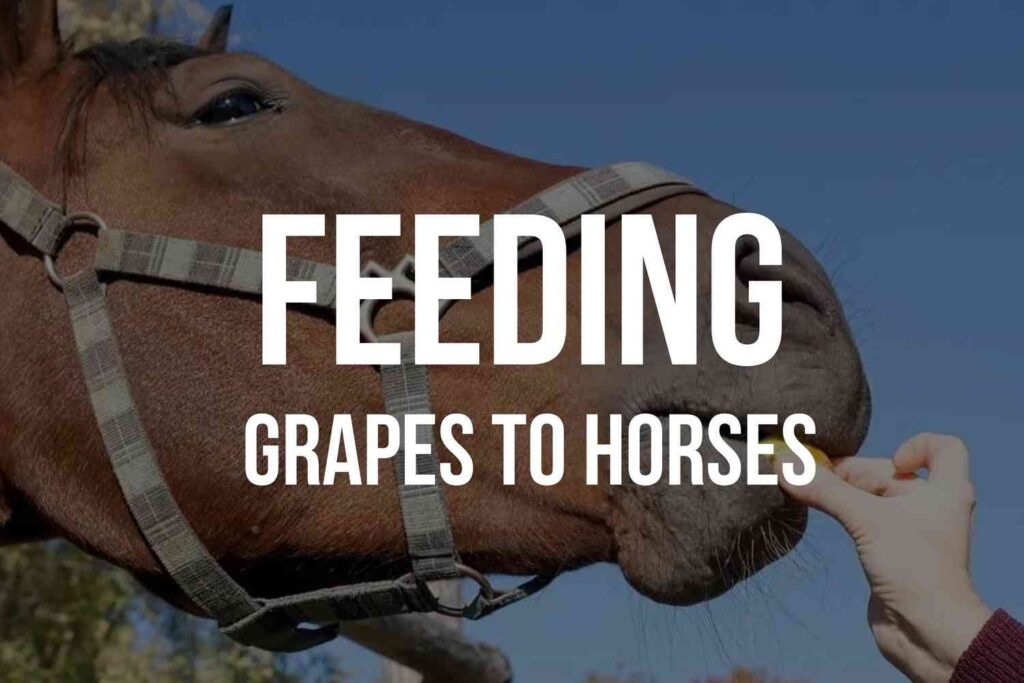Contents
Key Points
- Feeding horses raisins in moderation is generally safe; however, over-indulging can lead to health issues.
- Raisins contain natural sugars and vitamins beneficial for a horse’s diet but can also contribute to weight gain and dental problems.
- A horse’s breed, size, and level of activity should be considered when adding raisins to their diet.
- Always introduce new treats like raisins gradually and in small quantities.
- Consult with a veterinarian or equine nutritionist for personalized dietary recommendations.
Caring for horses involves not just exercise and grooming, but also ensuring they receive a balanced diet that provides all the nutrients they need. A common question among equine enthusiasts is, Can horses eat raisins? Let’s delve into the truth about feeding horses these dried fruits and the implications of such a dietary choice.
>> READ MORE:
- Can Horses Eat Grapes? – All Important Things You Should Know
- Discover the Joy: Determining the Perfect Quantity of Grapes for Your Horse to Safely Enjoy
Understanding Equine Diets and the Safety of Raisins
Horses are natural grazers, and their primary diet consists of hay and grasses which are high in fiber and essential for maintaining good digestive health. While horses do enjoy a variety of fruits and vegetables as treats, it’s crucial to know which are safe and in what quantities.
Raisins are dried grapes, and they possess natural sugars and important vitamins such as vitamin C, and may provide quick energy due to their carbohydrate content. For active horses, this might seemingly be a beneficial addition to their diets. Additionally, the antioxidant properties of raisins can be a positive note in a horse’s nutrition plan.

However, it’s important to recognize that horses have delicate digestive systems, and any drastic changes to their diet need to be approached with caution. The high sugar content in raisins could lead to digestive upset or contribute to obesity and dental issues if fed in large quantities. In the context of equine diets, providing treats like raisins should always be done in moderation.
Feeding Raisins to Horses: Quantity and Frequency
The key to incorporating raisins into a horse’s diet safely is moderation. A handful of raisins (about 10-15) given occasionally can be a nice treat for your horse. But what does moderation mean? For horses, it’s not just about the number of treats but the frequency. Offering raisins once or twice a week would typically be considered a safe practice. Still, this might vary depending on the horse’s overall diet, activity level, and any existing health conditions.
When introducing raisins, or any new treat, it’s best to start with a very small quantity to ensure the horse’s gut can handle it. Observe your horse for any adverse reactions, like changes in stool consistency or signs of colic. If any concerns are noted, it’s better to eliminate the treat from their diet and consult with a veterinarian.
Personalized Dietary Recommendations for Your Horse
Every horse is unique, and factors such as breed, age, size, metabolism, and level of activity greatly influence their dietary needs. For example, a large draft horse might handle a few more raisins than a small Shetland pony owing to its size and energy requirements.
Young horses and those that are pregnant, lactating, or have certain medical conditions such as insulin resistance or equine metabolic syndrome may have special dietary consideration that makes raisins an unwise choice.

Before making any significant changes to your horse’s diet, or if you’re unsure about what treats are appropriate, the advice of a veterinarian or an equine nutrition specialist should be sought. They can help you tailor treats like raisins to suit your horse’s specific needs and ensure a well-balanced diet.
Health Considerations and Alternative Treats
While raisins can be a sweet treat for horses, there are definitely health considerations to keep in mind. The sugar content in raisins can exacerbate conditions like laminitis, a painful and potentially crippling condition affecting horses’ hooves. For horses with a tendency toward obesity or dental issues, lower sugar or sugar-free treats might be more suitable.
Alternatives like apple slices, carrots, or even commercial horse treats designed to be low in sugar can be great options to raisins. The key again is moderation and variety, to preserve both health and interest in treats.
Conclusion
In conclusion, horses can safely indulge in raisins when they’re fed appropriately and in moderation. The addition of these treats should take into account the specific dietary needs and health concerns of the horse. Always prioritize your horse’s overall well-being when selecting treats and monitor any changes in health or behavior closely. With careful consideration and guidance from experts, you can offer raisins as a sweet and enjoyable treat for your equine friend.
Remember, treats should be a small part of a horse’s diet, added only as a supplement to a nutritionally adequate feeding regime. Unlock the truth: horses can eat raisins, but like all good things, it’s best enjoyed in moderation.

